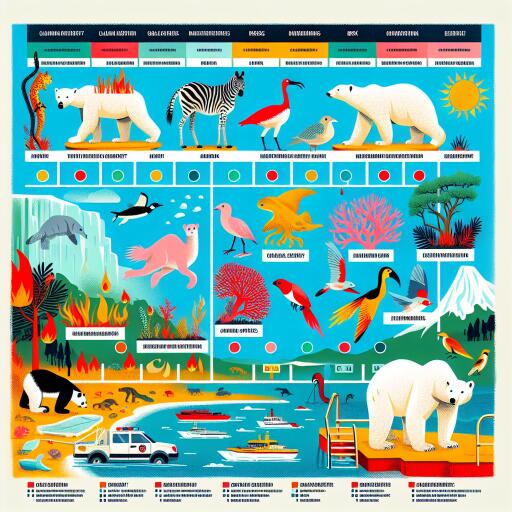
New study reveals insight into which animals are most vulnerable to extinction due to climate change
Throughout Earth’s history, climate change has played a pivotal role in shaping the survival prospects of myriad species. Historical climate shifts, often fueled by natural fluctuations in greenhouse gases from volcanic activity, have precipitated numerous extinctions. A groundbreaking study spearheaded by a team at the University of Oxford delves into this intricate relationship between climate change and species resilience, offering fresh perspectives on survival traits amidst environmental upheaval.
The focal point of this research is the marine invertebrate population, a group that includes sea urchins, snails, and shellfish. This category was chosen due to its extensive and well-documented fossil record, shedding light on the patterns of extinction over 485 million years. By analyzing over 290,000 fossil records spanning more than 9,200 genera, the study aimed to identify traits influencing a species’ ability to withstand climate-induced changes.
One innovative aspect of the study was its incorporation of previously underexplored traits, such as preferred temperature ranges. By integrating these trait databases with climate simulation data, the researchers constructed a comprehensive model to examine the various factors contributing to extinction risks during periods of climate change.
The analysis unveiled that the geographic range of a species is a critical determinant of its vulnerability to extinction. However, the extent of climate change itself also plays a significant role in determining survival outcomes. This insight carries profound implications for contemporary biodiversity conservation efforts, identifying species at heightened risk due to ongoing human-induced climate shifts.
Specifically, the study highlights the peril facing species with narrow thermal tolerance, particularly those inhabiting polar and tropical regions. These species stand on the frontline of climate change impacts, facing the threat of extinction if local temperature shifts exceed their adaptive limits. According to the research, substantial localized climate changes could precipitate widespread extinction events, edging the planet towards a potential sixth mass extinction.
The findings underscore the urgency of addressing climate change through mitigative actions and further research. The study advocates for investigations into how climate change intertwines with other existential threats like ocean acidification and deoxygenation, paving the way for more nuanced understanding and robust conservation strategies.
The researchers, including contributions from the University of Bristol, emphasize the historical linkage between marine life extinction risks and climate change. This correlation serves as a critical warning, spotlighting the consequences of unchecked anthropogenic climate impacts.
This pioneering research not only enriches our understanding of the relationship between climate change and biodiversity but also acts as a clarion call for immediate action to safeguard vulnerable species. By harnessing insights from the distant past, we are provided with a lens through which to address current and future challenges, ensuring a thriving planet for generations to come.





Leave a Reply